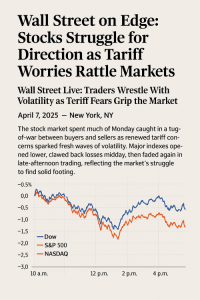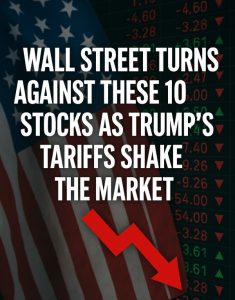Lina Khan: The Trustbuster Taking on Big Tech, Big Pharma, and Big Groceries

Lina Khan: The Trustbuster Taking on Big Tech, Big Pharma, and Big Groceries
Lina Khan, the current chair of the Federal Trade Commission (FTC), has emerged as one of the most influential regulators in the U.S. Her mission? To curb the overwhelming power of some of America’s largest corporations, particularly in industries that directly affect the everyday lives of consumers—Big Tech, Big Pharma, and Big Groceries.
A Rising Star in Antitrust
Lina Khan, who became FTC chair in 2021, made waves as a legal scholar with her groundbreaking analysis of Amazon’s monopolistic practices. Her 2017 paper, “Amazon’s Antitrust Paradox,” argued that existing antitrust laws were insufficient to regulate the growing dominance of tech giants. Her fresh perspective on competition laws instantly placed her in the spotlight and led to her rapid rise within the regulatory community.
At just 34 years old, Khan represents a new generation of antitrust leaders who aim to rein in corporate concentration. Her critics, including industry lobbyists and certain lawmakers, argue that her approach could stifle innovation and harm consumers. But Khan remains undeterred, focusing on reshaping competition laws to better reflect the realities of today’s marketplace.
Big Tech in the Crosshairs
Khan’s biggest challenge is perhaps the power held by tech giants like Google, Facebook (now Meta), Amazon, and Apple. These companies have amassed immense influence over markets and personal data, often acquiring smaller rivals and extending their reach into various sectors.
Under Khan’s leadership, the FTC has taken steps to scrutinize mergers more aggressively, seeking to prevent monopolistic behavior before it becomes entrenched. The FTC, along with the Department of Justice, has filed lawsuits against several tech behemoths for anticompetitive practices. For instance, the commission is currently investigating Amazon’s sprawling empire, and there have been significant efforts to break up Meta’s control of Instagram and WhatsApp.
The stakes are high. Advocates of stricter regulations argue that the monopolization of digital markets stifles innovation, exploits workers, and compromises consumer privacy. But the tech industry insists that its market dominance allows for better services and innovation, raising concerns about whether breaking them up might hinder technological progress.
Taking on Big Pharma
Another critical area where Khan has directed her attention is the pharmaceutical industry. Drug prices in the U.S. are notoriously high, often leaving consumers with few affordable options. Big Pharma companies frequently acquire competitors or smaller firms with promising drugs, reducing competition and driving prices up.
The FTC has signaled it will be more aggressive in blocking mergers that could potentially harm consumers. One major focus is preventing pharmaceutical companies from engaging in “pay-for-delay” deals, where brand-name drug manufacturers pay generic companies to delay releasing cheaper versions of drugs. This tactic has cost consumers billions of dollars and prolonged access to more affordable treatments.
Khan’s stance is clear: no more loopholes that let Big Pharma continue business as usual. And while the industry is pushing back, arguing that mergers and acquisitions fuel innovation and research, Khan’s focus remains firmly on protecting the American consumer.
The Grocery Giants Face Scrutiny
In addition to tech and pharmaceuticals, the grocery sector has caught Khan’s eye. In recent years, a few large corporations have come to dominate the food retail industry. This consolidation impacts everything from farmer pricing to what’s on your local grocery store’s shelves. Higher prices and fewer choices are often the end result for consumers.
Khan and the FTC have started to investigate whether these giant grocery chains are unfairly squeezing out smaller, local businesses, and whether their pricing strategies lead to less competitive markets. As the cost of food rises, with inflation and supply chain disruptions still prevalent, the need for fair competition in this industry becomes even more urgent.
A Long Fight Ahead
Khan’s efforts to reshape how America handles antitrust law are ambitious and controversial. Her battle against Big Tech, Big Pharma, and Big Groceries isn’t just about enforcing existing laws—it’s about updating and reforming them for the modern era. Many of the regulations still in place were created during the 20th century, when the economic landscape looked vastly different.
The question remains: Can Lina Khan’s FTC succeed in pushing back against some of the most powerful corporations in the world? If her track record so far is any indication, she’s not backing down anytime soon.
Khan’s fight will likely take years, if not decades, to fully play out, and the courts will ultimately decide much of what the FTC can or cannot do. But one thing is certain: under her leadership, the era of unchecked corporate power may soon be coming to an end.
Lina Khan’s role as the head of the FTC has positioned her as a formidable opponent to monopolistic practices across various critical sectors. Her battle against corporate giants could redefine the future of competition law in the U.S. and how consumers benefit—or suffer—under the current system. For now, Khan is at the forefront of the fight, and whether or not she succeeds could change the landscape of the American economy for generations to come.






